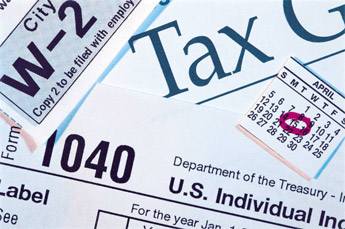How a Home Foreclosure Affects Taxpayers
Before 2007, any part of a mortgage forgiven after a foreclosure, such as when the house was sold and the bank forgave a mortgage exceeding the home’s sale price, was considered taxable income, but that has changed now.
According to RealtyTrac, there were more than 2.8 million U.S. home foreclosures in 2010. Fortunately, tax law changes in the 2007 Mortgage Relief Act, as extended, are available at least for foreclosures occurring before 2013.
The tax relief comes in the special provision Qualified Principal Indebtedness Exclusion, and up to $2 million of cancellation of debt (COD) can be excluded under this provision. To qualify for the exclusion, the COD transaction must occur before 2013; the cancelled debt must have been originally incurred to acquire, construct, or improve the taxpayer’s principal residence; and the debt must be secured by that residence.
The taxpayer’s basis (generally what was paid for the house plus the costs of any improvements) in the residence is reduced, but not below zero, by the amount excluded under this exception.
Therefore any excluded COD will decrease any loss (or increase any gain) on the sale of the residence. But this usually doesn’t matter since the loss is not deductible and any gain up to $250,000 ($500,000 if married) generally qualifies for the home-gain exclusion, so it isn’t taxable anyway.
As an example, several years ago, Tim and Tina paid $500,000 for their home. Due to declining real estate market, their home is now worth $350,000, but their mortgage balance is $450,000. To make matters worse, Tim has lost his job. With no way to make their monthly payments and no hope of selling their home for enough to pay off their mortgage, Tim and Tina hand the deed to the bank and walk away from their mortgage. The bank subsequently nets $350,000 from the sale of the home and forgives the remaining $100,000 loan balance. Tim and Tina have lost their home and all the money they put into it.
For tax purposes, however, two things have happened. They have sold their home for a $150,000 loss and realized COD income of $100,000. And the two transactions do not offset each other. In fact, the loss from the sale of their residence is not deductible, whereas the COD income is fully taxable, unless an exception applies. Fortunately for Tim and Tina, they can exclude the $100,000 of COD under the qualified Principal Indebtedness Exclusion. This will decrease the basis in their home by $100,000, so their loss will now be $50,000 instead of $150,000; unfortunately, personal losses are not deductible.
The bottom line is the foreclosure has no impact on their federal income taxes. Unfortunately, this special COD exclusion does not apply to all home loans. It doesn’t work for second mortgages or home equity loans that were used for purposes other than to improve the taxpayer’s principal residence, nor does it work for vacation home mortgages. It will only help those who borrowed too much to acquire, build, or improve a principal residence.
However, other exclusions may apply. For example, COD income that occurs during bankruptcy proceedings is excluded from income, as is COD income to the extent of the borrower’s insolvency immediately before the debt forgiveness event occurs. Also, there is no COD income if the mortgage was nonrecourse or seller financed.
More News . . .
(801) 763-8295

